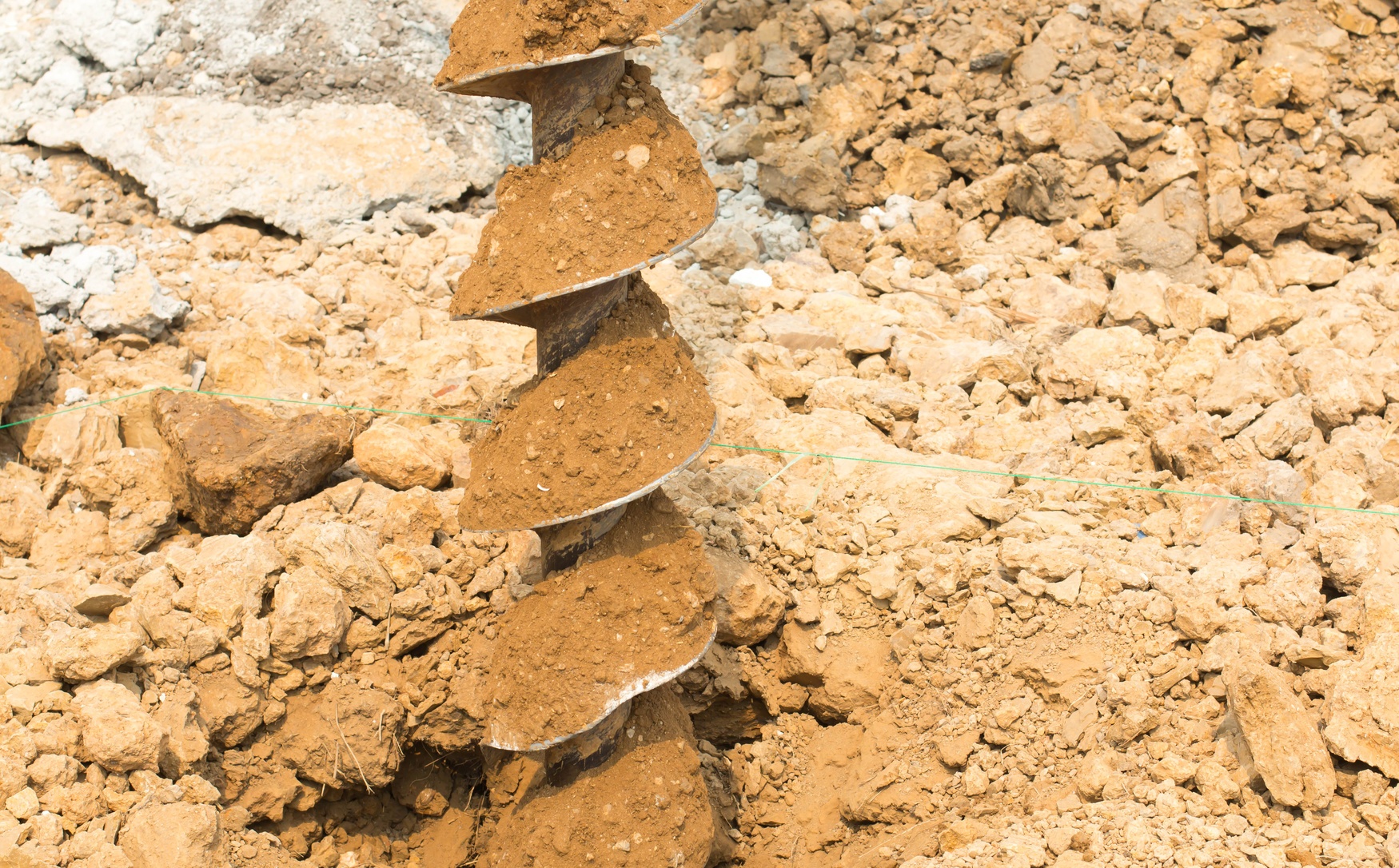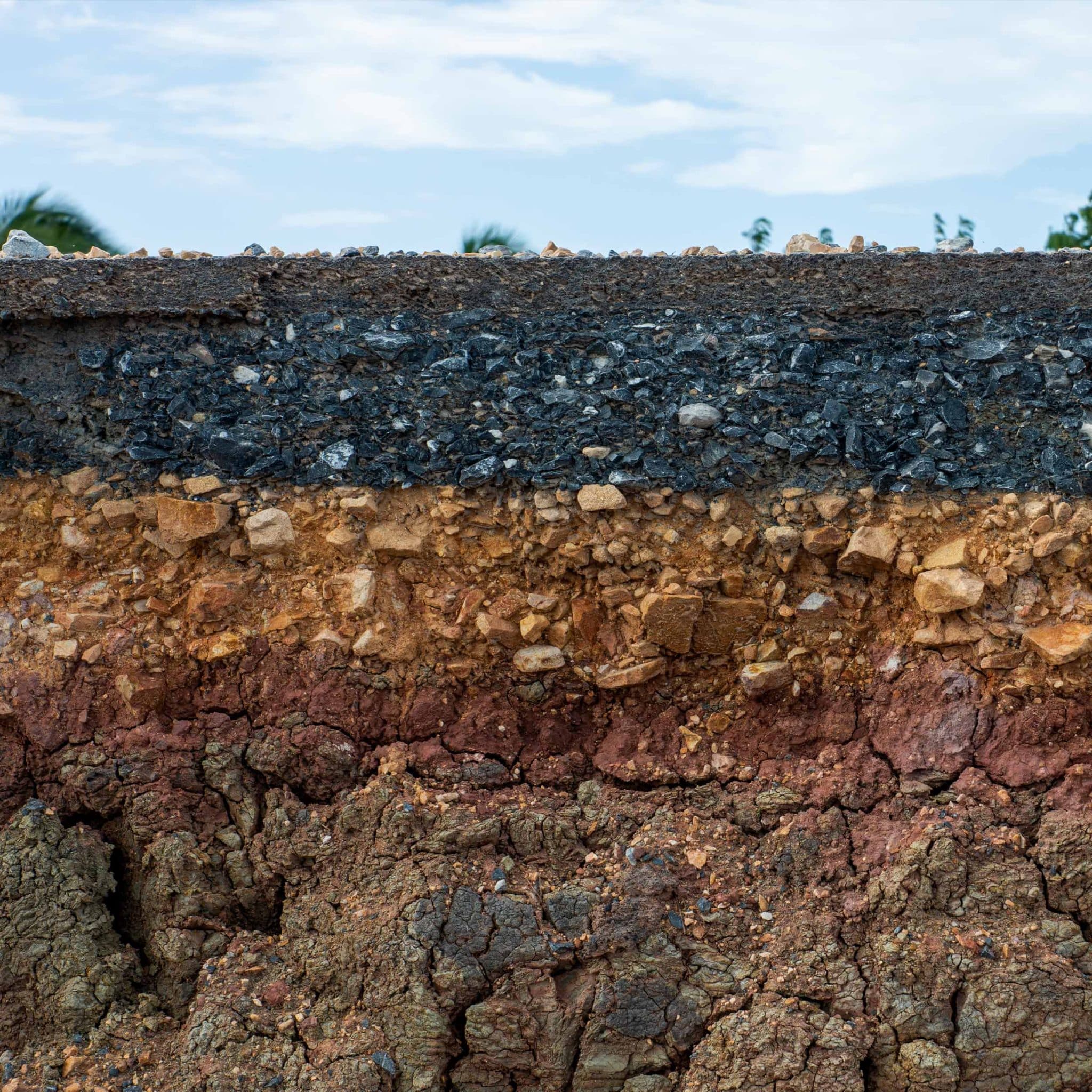Leading Geotechnical Companies in South Africa: Who You Must Know
Leading Geotechnical Companies in South Africa: Who You Must Know
Blog Article
The Importance of Geotechnical Design in Attending To Ecological Difficulties and Enhancing Construction Safety
Geotechnical engineering serves as a keystone in the intersection of ecological stewardship and construction security, supplying crucial understandings into the behavior of soil and rock under numerous problems. By carrying out strategic site investigations and customized mitigation procedures, geotechnical designers play an essential duty in protecting both human lives and eco-friendly integrity.

Duty of Geotechnical Engineering
Geotechnical design plays a critical function in the design and building of framework by addressing the habits of dirt and rock products under different problems. This field of engineering is essential for recognizing the communication in between structures and the ground, which consists of identifying the load-bearing capacity of dirt, examining stability, and anticipating possible settlement or failure.
Geotechnical designers are responsible for performing website investigations, which entail tasting and testing soil and rock to collect information on their chemical and physical buildings. This info is vital for developing foundations, keeping walls, and various other earth-retaining frameworks that ensure safety and security and longevity. Geotechnical engineering educates the choice of appropriate building approaches and products, therefore lessening threats connected with soil actions.
Additionally, the integration of geotechnical design principles into city planning and ecological administration is essential for dealing with obstacles such as ground contamination and groundwater monitoring. By understanding geotechnical elements, engineers can establish sustainable solutions that enhance the resilience of facilities against natural threats, while also promoting ecological stewardship. Eventually, the role of geotechnical design is crucial for accomplishing risk-free, resilient, and eco conscious building techniques.
Soil Erosion Reduction
Soil erosion presents a considerable threat to both ecological stability and framework honesty, impacting around 24 billion tons of abundant dirt lost yearly worldwide. This sensation is exacerbated by elements such as logging, urbanization, and inadequate agricultural practices. Geotechnical engineering plays an essential duty in developing efficient dirt disintegration reduction techniques that protect both the setting and construction projects.
One technique requires the execution of disintegration control techniques such as plants growing, which maintains dirt via origin systems. Furthermore, the building and construction of retaining balconies and walls can successfully minimize surface area overflow and secure prone locations from disintegration. Correct water drainage layout is additionally critical; it decreases water accumulation and routes excess drainage far from important frameworks.
Furthermore, geotechnical designers use dirt stablizing strategies, such as the application of geotextiles and naturally degradable floor coverings, to improve soil communication and stop deterioration - geotechnical specialist. Routine tracking and assessment of erosion-prone websites enable prompt interventions, making sure long-lasting sustainability. By incorporating these approaches, geotechnical engineering not just reduces the influences of soil disintegration however also adds to the durability of infrastructure versus environmental obstacles, eventually cultivating a much safer and more lasting built setting
Groundwater Protection Approaches
Groundwater acts as an important source for alcohol consumption water, agriculture, and commercial processes, making its defense crucial for ecological sustainability and public health and wellness. Reliable groundwater protection approaches are crucial in minimizing contamination dangers and guaranteeing the durability of this source.

Routine monitoring of groundwater high quality is likewise essential, allowing very early detection of contamination resources and facilitating timely removal initiatives. Using advanced innovations, such as geophysical studies and remote sensing, aids in recognizing potential dangers to groundwater gets.
In addition, public education and stakeholder engagement are critical, fostering community support for groundwater defense initiatives. about geotechnical engineering. By incorporating regulative actions, technical improvements, and area participation, we can develop a thorough structure that safeguards groundwater resources while promoting lasting growth and building and construction techniques
Landslide Threat Administration
Landslides position significant threats to both human safety and framework, making efficient risk management strategies important. Geotechnical engineering plays a crucial duty in determining, evaluating, and mitigating landslide risks. A thorough understanding of incline security, soil mechanics, and hydrology is essential for creating efficient risk monitoring strategies.
The very first step in landslide threat administration involves comprehensive site investigations, that include try these out geological mapping and soil screening. These investigations assist engineers assess the potential for landslides by determining vital aspects such as incline angles, soil structure, and water content. Using innovative modern technologies such as remote noticing and geophysical studies can improve the accuracy of these assessments.
Once risks are determined, ideal reduction measures can be executed. These may consist of engineering solutions such as retaining wall surfaces, drainage systems, and slope stabilization methods. Additionally, keeping an eye on systems must be established to detect indicators of ground motion and modifications in water degrees, enabling for positive treatments.

Enhancing Construction Security
Building sites often offer a myriad of threats that can jeopardize employee safety and job honesty. Geotechnical design plays an essential role in improving building safety by giving vital insights right into subsurface problems. Via visit detailed soil and rock analysis, geotechnical engineers can recognize prospective risks, such as dirt instability, look at here groundwater concerns, and seismic susceptabilities, which might jeopardize the security of building and construction activities.
Implementing geotechnical remedies, such as correct foundation design and the usage of keeping structures, alleviates these risks substantially. These remedies not just guarantee the stability of the structures being built however likewise develop a much safer working environment for building and construction personnel.
In addition, fostering a society of safety via training and adherence to established security procedures even more improves construction website security. By incorporating geotechnical experience right into the preparation and execution phases, building and construction jobs can achieve higher security criteria, inevitably protecting employees and making certain successful job completion.
Conclusion
In conclusion, geotechnical engineering offers as a vital technique in promoting and tackling ecological difficulties construction safety and security. Via reliable dirt erosion reduction, groundwater protection approaches, and landslide danger management, geotechnical designers add to the advancement of resilient framework.
Geotechnical engineering serves as a keystone in the intersection of ecological stewardship and building safety, giving important understandings into the behavior of soil and rock under different conditions. Geotechnical engineering educates the option of proper building and construction approaches and products, consequently minimizing threats connected with soil actions.
Geotechnical design plays an essential role in creating efficient dirt erosion mitigation methods that safeguard both the setting and construction jobs.
Moreover, geotechnical engineers use dirt stabilization strategies, such as the application of geotextiles and naturally degradable mats, to boost soil communication and avoid destruction. Via thorough dirt and rock analysis, geotechnical designers can determine prospective risks, such as dirt instability, groundwater issues, and seismic vulnerabilities, which might jeopardize the safety and security of building activities.
Report this page